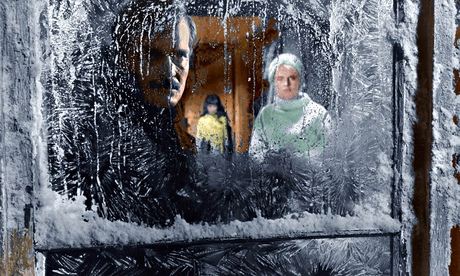
One sunny morning in May 1956, the poet Boris Pasternak came out of his dacha in the Moscow suburbs carrying a bundle wrapped in newspaper and string. A sardonic grin on his face, he handed it over to the Italian visitor standing in his garden. "You are hereby invited," he said, "to my execution."
He wasn't being paranoid. Twenty years earlier, Pasternak had watched the secret police summon his neighbour, the novelist Boris Pilnyak, away on urgent business. The urgent business turned out to be a bullet in the back of his head. Pilnyak's crime was to have been pronounced a not entirely execrable writer by the exiled Trotsky. And here was Pasternak giving a representative for the Milanese publisher Giangiacomo Feltrinelli the manuscript of Dr Zhivago – a love story he knew the Soviet authorities would never allow to be published because it didn't "conform to official cultural guidelines".
For one thing, Dr Zhivago had nothing positive to say about the new Russia. As the editors of the literary journal Novy Mir told him, they couldn't possibly print extracts from it because of its "non-acceptance of the socialist revolution". For another, the novel was, like all love stories, – indeed, like all but the most manically modernist fiction – premised on the idea of the individual human consciousness. Post-tsarist Russia, on the other hand, was centralised and collectivist and anti anything that spoke to what it saw as the bourgeois fantasy of the self and its essences. As one of his early illicit readers said, Pasternak's was a "humanistic message… [that] posed a fundamental challenge to the Soviet ethic of sacrifice of the individual to the communist system".
Not that the Soviets believed Feltrinelli would actually put the book out. He was, after all, a Marxist – and the powers that be were confident that if instructed to abandon publication he would do so. They were wrong. Feltrinelli, like all Italian communists, wasn't as pliable as his Soviet counterparts. And he became less pliable still when, midway through his reading of the Zhivago manuscript, the Russians invaded Hungary. "His desire to proceed with Pasternak's book," write Peter Finn and Petra Couvée in their eager yet earnest account of what they call the Zhivago affair, "was only strengthened." A year later, in November 1957, the book hit the shelves.
Enter the Americans. A couple of months after the appearance of Feltrinelli's Italian edition of Dr Zhivago, a photographed copy of Pasternak's original manuscript fetched up at CIA headquarters in Washington, where, the Soviet Russia division chief John Maury pronounced it "the most heretical literary work by a Soviet author since Stalin's death". All the Americans had to do now was to tell the Russian people about it – without letting on that it was they who were doing the telling.
So it was that bootlegged copies of Dr Zhivago in the original Russian were sneaked into Brussels and given away at the 1958 World's Fair – in the Vatican pavilion, where exiled Catholic Russians had curtained off a small library full of books aimed at Christians living under repressive regimes. If that all sounds a bit Our Man in Havana, well, be grateful. It's pretty much the only time in this tenebrous tale that you feel like smiling.
Within months of the CIA's smuggling operations, it was announced that Pasternak was to be awarded the Nobel prize for literature. He rejected the honour after coming under severe pressure from both the politicos and the public. One day he got a letter from someone calling himself "Judas". "I only betrayed Jesus," it said, "but you – you betrayed the whole of Russia." On the whole of Russia's behalf, the Kremlin spent the next two years persecuting Pasternak. (They would have gone on longer had he not let them down by dying.)
But it was his lover, Olga Ivinskaya, who got the worst of it. Arrested and interrogated on numerous occasions before Dr Zhivago saw the light of day, she was sentenced to eight years in a Siberian labour camp after Pasternak's death. Her crime was to have inspired him to write the book.
Not that the book is all that inspired. The great lacuna at the heart of The Zhivago Affair is the realisation that Dr Zhivago isn't that great a novel. Finn and Couvée remind us David Lean's 1965 movie version was rightly "criticised for its naive rendering of history and its melodrama", but they seem blithely unaware that the same charges can be levelled at the book itself.
Given the circumstances of its composition, Dr Zhivago will always be of sociocultural interest but not one of the approving notices the book received on publication (from some of the biggest critics around: Kermode, Hampshire, Pritchett) rings true today. Edmund Wilson's glowing notice in the New Yorker gave the game away when it talked about "the courage of genius", as if the trials Pasternak had endured were enough to vouchsafe the book's quality. But ghastly though those trials were, literature must be judged as literature lest criticism descend to tub-thumping. Had Finn and Couvée asked whether the wide-eyed approbation that greeted Dr Zhivago in the west was no more than a mirror of the agitprop attacks it suffered at home, they might have written a better book.
To buy The Zhivago Affair for £15.49 with free UK p&p call 0330 333 6846 or go to guardianbookshop.co.uk

